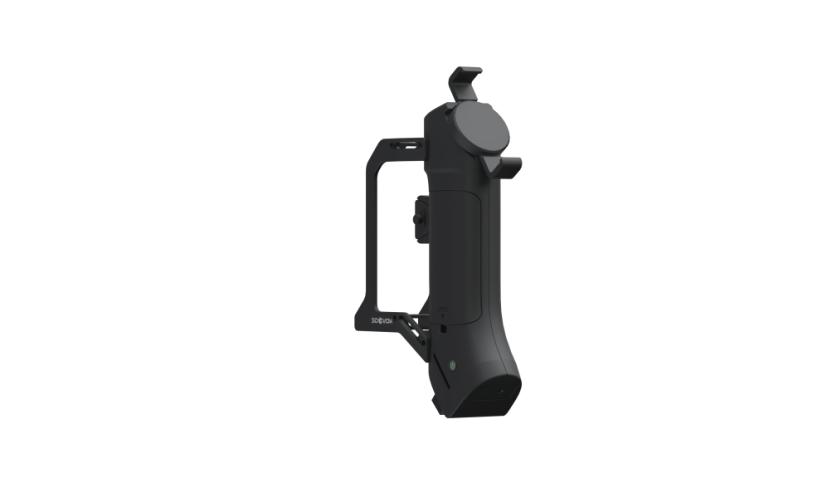What Are the Different Types of 3D Scanners?
03/29/25
At 3DeVOK, we understand the importance of making the right choice. Our team is dedicated to providing guidance and solutions that match your specific requirements. Whether you’re looking for accuracy, speed, or versatility, we can help you find a 3D scanner that suits your needs and budget.
Types of 3D Scanners
When choosing a 3D scanner, it’s important to understand the different types and how each one functions. Here are three main categories of 3D scanners:
Laser Scanning: A Precise Solution for Complex Parts
Laser scanners are known for their accuracy and ability to capture fine details. By using laser beams, they create detailed 3D models of physical objects. This type of scanner is often used in reverse engineering to obtain precise measurements of objects with intricate geometries. Laser scanning is ideal for parts that require a high level of precision, particularly in reverse engineering projects where accuracy is critical. The scanner’s ability to capture even the smallest of details ensures that the recreated object is a perfect representation of the original. At 3DeVOK, we highly recommend laser scanning for complex parts that demand exceptional precision.
Structured Light Scanning: Ideal for Smaller Objects
Structured light scanning uses a projected light pattern to capture the shape and dimensions of an object. It is highly effective for scanning smaller objects with complex geometries and is frequently used in reverse engineering to create CAD models. Structured light scanners are known for their speed and ability to capture high-resolution data, which makes them ideal for projects requiring quick turnaround times. These scanners can efficiently scan small to medium-sized parts, offering high accuracy while keeping the scanning process fast and non-intrusive. If your reverse engineering project involves small, detailed parts, structured light scanning might be the best choice.
Contact Scanning: A Direct Approach to Data Collection
Contact scanning involves physically touching the surface of an object with a probe to collect data. While not as commonly used as laser or structured light scanning, contact scanning can still be beneficial in reverse engineering, especially for objects with simple geometries or flat surfaces. This method is often employed when high precision is required in specific areas of the object where non-contact scanning may fall short.
Though contact scanning can be more time-consuming, it offers unparalleled accuracy in certain applications. When paired with 3D scan reverse engineering software, the collected data can be processed into a highly accurate digital model, which can then be used to create precise modifications or replicable designs. If your reverse engineering project requires detailed and specific measurements, contact scanning, enhanced by reverse engineering software, ensures that you get the most accurate data possible.
Choosing the Right 3D Scanner for Your Business
Selecting the appropriate 3D scanner for your business is a decision that can significantly impact your operations. First, consider the scale and mobility of your projects. If you frequently need to scan objects on – site at various locations, a portable 3D scanner is an excellent choice. Its compact design allows you to take it wherever your work takes you, whether it’s to a client’s facility or a remote job site. For businesses focused on high – precision work with complex parts, laser scanners are the go – to option. On the other hand, if you deal with smaller, detailed items and value speed, structured light scanners are ideal. And for projects where specific, tactile measurements are crucial, contact scanners can’t be beat. At 3DeVOK, we help you navigate these choices, ensuring your selected 3D scanner, including portable 3D scanners, aligns perfectly with your business goals and budget.
Conclusion
In summary, 3D scanners come in various types, each with distinct advantages. Laser scanners ensure high precision for complex parts, structured light scanners are ideal for small objects, and contact scanners offer accuracy for specific measurements. Portable 3D scanners add mobility to on – site work. At 3DeVOK, we help businesses pick the right scanner based on their needs, ensuring they can maximize the benefits of 3D scanning technology.
Related Articles
View Our Product






